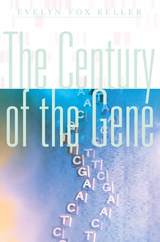
In a book that promises to change the way we think and talk about genes and genetic determinism, Evelyn Fox Keller, one of our most gifted historians and philosophers of science, provides a powerful, profound analysis of the achievements of genetics and molecular biology in the twentieth century, the century of the gene. Not just a chronicle of biology’s progress from gene to genome in one hundred years, The Century of the Gene also calls our attention to the surprising ways these advances challenge the familiar picture of the gene most of us still entertain.
Keller shows us that the very successes that have stirred our imagination have also radically undermined the primacy of the gene—word and object—as the core explanatory concept of heredity and development. She argues that we need a new vocabulary that includes concepts such as robustness, fidelity, and evolvability. But more than a new vocabulary, a new awareness is absolutely crucial: that understanding the components of a system (be they individual genes, proteins, or even molecules) may tell us little about the interactions among these components.
With the Human Genome Project nearing its first and most publicized goal, biologists are coming to realize that they have reached not the end of biology but the beginning of a new era. Indeed, Keller predicts that in the new century we will witness another Cambrian era, this time in new forms of biological thought rather than in new forms of biological life.
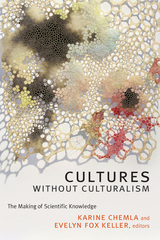
Contributors. Bruno Belhoste, Karine Chemla, Caroline Ehrhardt, Fa-ti Fan,Kenji Ito, Evelyn Fox Keller, Guillaume Lachenal, Donald MacKenzie, Mary S. Morgan, Nancy J. Nersessian, David Rabouin, Hans-Jörg Rheinberger, Claude Rosental, Koen Vermeir
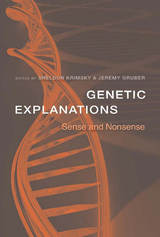
Can genes determine which fifty-year-old will succumb to Alzheimer’s, which citizen will turn out on voting day, and which child will be marked for a life of crime? Yes, according to the Internet, a few scientific studies, and some in the biotechnology industry who should know better. Sheldon Krimsky and Jeremy Gruber gather a team of genetic experts to argue that treating genes as the holy grail of our physical being is a patently unscientific endeavor. Genetic Explanations urges us to replace our faith in genetic determinism with scientific knowledge about how DNA actually contributes to human development.
The concept of the gene has been steadily revised since Watson and Crick discovered the structure of the DNA molecule in 1953. No longer viewed by scientists as the cell’s fixed set of master molecules, genes and DNA are seen as a dynamic script that is ad-libbed at each stage of development. Rather than an autonomous predictor of disease, the DNA we inherit interacts continuously with the environment and functions differently as we age. What our parents hand down to us is just the beginning. Emphasizing relatively new understandings of genetic plasticity and epigenetic inheritance, the authors put into a broad developmental context the role genes are known to play in disease, behavior, evolution, and cognition.
Rather than dismissing genetic reductionism out of hand, Krimsky and Gruber ask why it persists despite opposing scientific evidence, how it influences attitudes about human behavior, and how it figures in the politics of research funding.

In science, more than elsewhere, a word is expected to mean what it says, nothing more, nothing less. But scientific discourse is neither different nor separable from ordinary language—meanings are multiple, ambiguities ubiquitous. Keywords in Evolutionary Biology grapples with this problem in a field especially prone to the confusion engendered by semantic imprecision.
Written by historians, philosophers, and biologists—including, among others, Stephen Jay Gould, Diane Paul, John Beatty, Robert Richards, Richard Lewontin, David Sloan Wilson, Peter Bowler, and Richard Dawkins—these essays identify and explicate those terms in evolutionary biology which, though commonly used, are plagues by multiple concurrent and historically varying meanings. By clarifying these terms in their many guises, the editors Evelyn Fox Keller and Elisabeth Lloyd hope to focus attention on major scholarly problems in the field—problems sometimes obscured, sometimes reveals, and sometimes even created by the use of such equivocal words. “Competition,” “adaptation,” and “fitness,” for instance, are among the terms whose multiple meaning have led to more than merely semantic debates in evolutionary biology.
Exploring the complexity of keywords and clarifying their role in prominent issues in the field, this book will prove invaluable to scientists and philosophers trying to come to terms with evolutionary theory; it will also serve as a useful guide to future research into the way in which scientific language works.
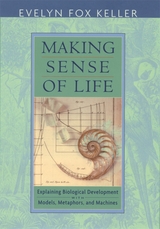
What do biologists want? If, unlike their counterparts in physics, biologists are generally wary of a grand, overarching theory, at what kinds of explanation do biologists aim? How will we know when we have “made sense” of life? Such questions, Evelyn Fox Keller suggests, offer no simple answers. Explanations in the biological sciences are typically provisional and partial, judged by criteria as heterogeneous as their subject matter. It is Keller’s aim in this bold and challenging book to account for this epistemological diversity—particularly in the discipline of developmental biology.
In particular, Keller asks, what counts as an “explanation” of biological development in individual organisms? Her inquiry ranges from physical and mathematical models to more familiar explanatory metaphors to the dramatic contributions of recent technological developments, especially in imaging, recombinant DNA, and computer modeling and simulations.
A history of the diverse and changing nature of biological explanation in a particularly charged field, Making Sense of Life draws our attention to the temporal, disciplinary, and cultural components of what biologists mean, and what they understand, when they propose to explain life.
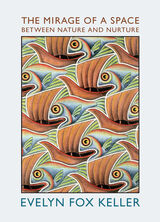
READERS
Browse our collection.
PUBLISHERS
See BiblioVault's publisher services.
STUDENT SERVICES
Files for college accessibility offices.
UChicago Accessibility Resources
home | accessibility | search | about | contact us
BiblioVault ® 2001 - 2024
The University of Chicago Press









